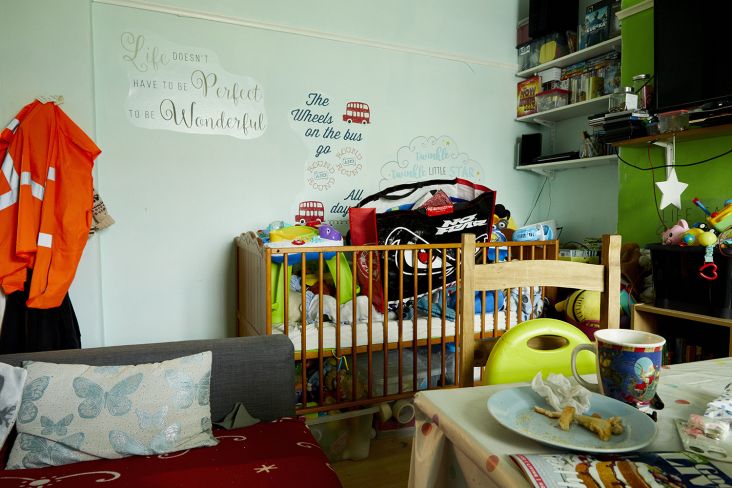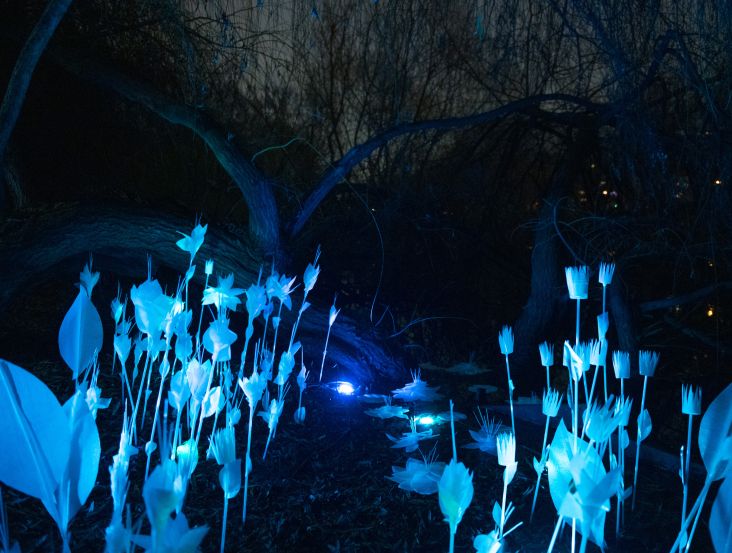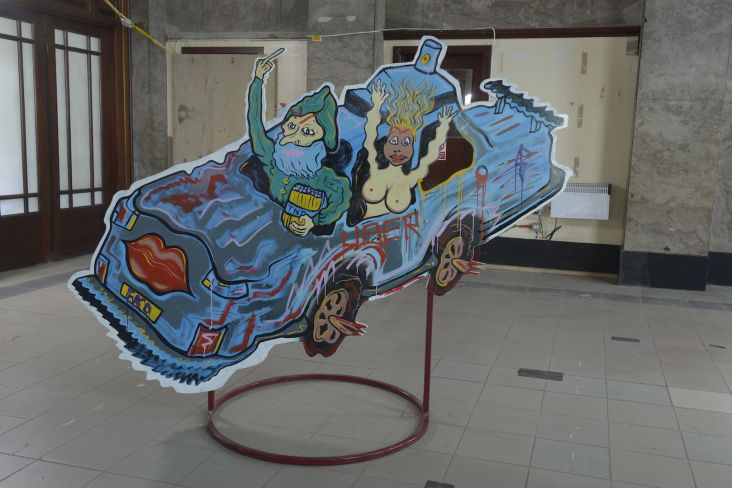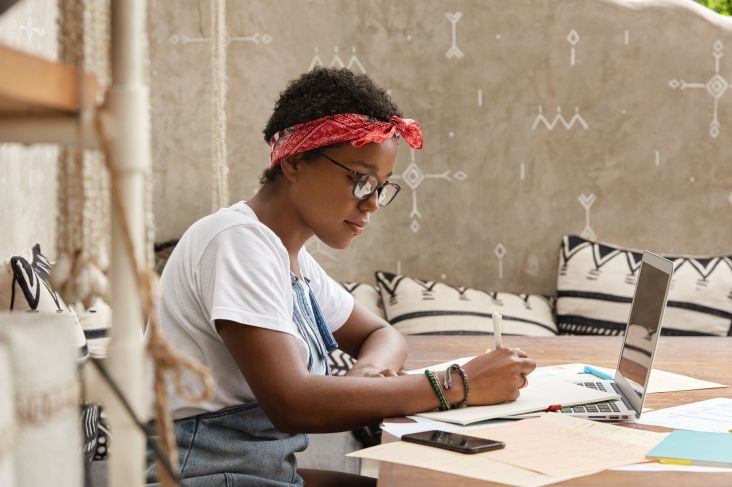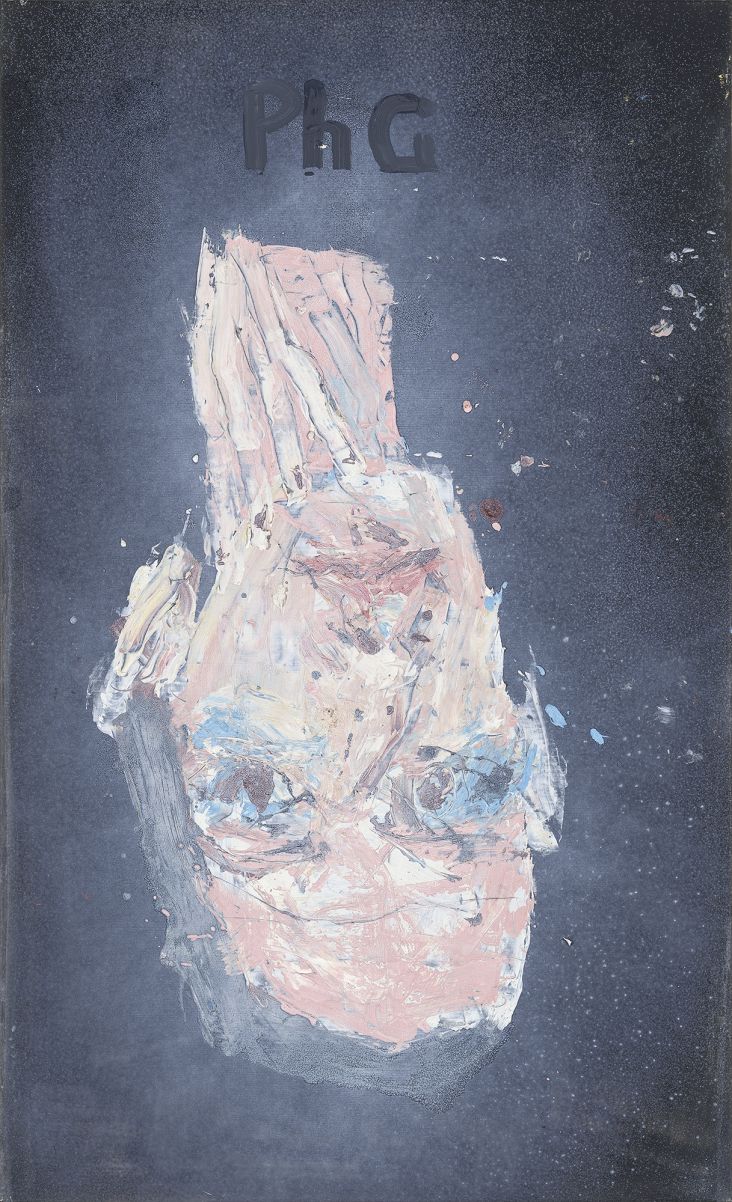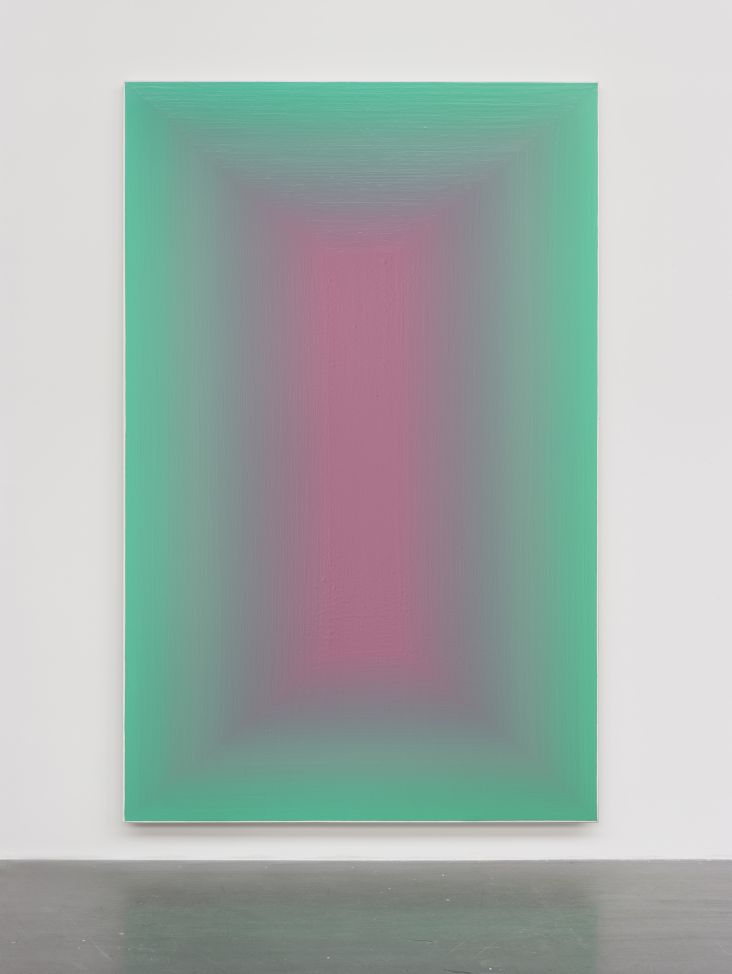Caroline Broadhead on 10 years at Central Saint Martins and her love of jewellery and collaboration
Central Saint Martins is hosting a retrospective of the work of Caroline Broadhead this month, featuring projects spanning 45 years of her diverse practice.
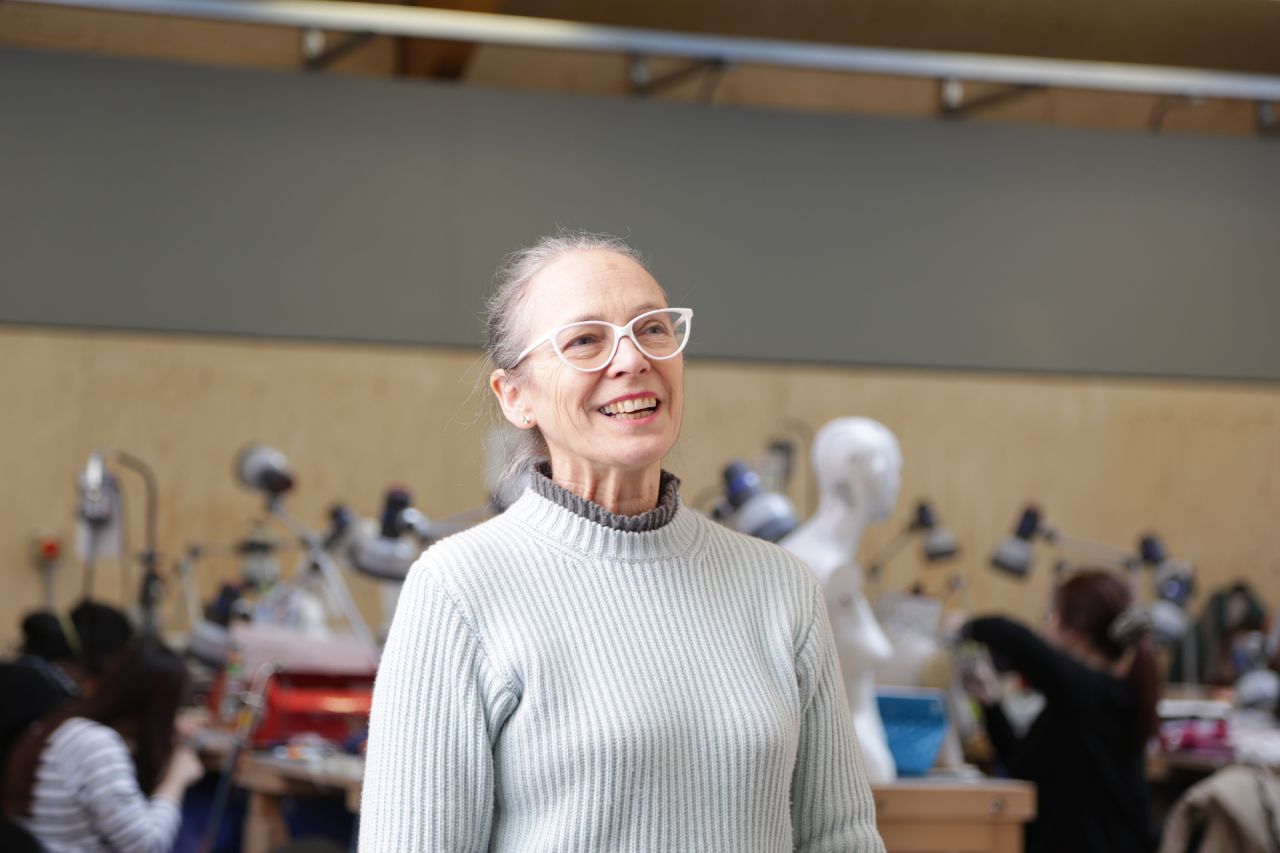
All photography courtesy of Central Saint Martins
Trained as a jeweller at Central Saint Martins, the college was lucky to see her return in 2009 to lead BA Jewellery Design becoming Programme Director of Jewellery and Textiles in 2012. She retired from this position last year and, in addition to teaching at Central Saint Martins and other colleges, she continues to make work in jewellery, sculptural installation and film.
The exhibition includes her works from the 1970s to 2017 and is a wonderful opportunity to see how far the intricate craft and scale of jewellery design and making has been developed during her career. We spoke to Caroline about this and much more.
When did you first make jewellery? What attracted you to it as a discipline?
I first started making jewellery at school, where there was a ceramics teacher who encouraged pupils to experiment. The first things I produced were made out of ceramics and later metal and enamel. I liked the scale of jewellery and that you could make unusual things to wear.
In your own practice, you create a range of three-dimensional objects including jewellery, textiles and furniture. Could you talk us through your object-based practice and interests?
I make things because I am interested in materials and ideas. What started in jewellery led me onto other objects that come into contact with the body, such as clothing and chairs – ones that might represent a person. Ideas I am interested in are the interface between a person and an object, the sense of touch, movement and change.
You've also produced a number of works and installations in historic buildings, such as Above Below in Bath Abbey. Can you talk us through your installation practice – often made in collaboration with choreographers for live performance? Is this a very different process for you, in comparison to your object-based works?
I like to collaborate with others as well as working on my own. When I was making clothing forms, I realised that where and how they were placed in a gallery setting was a strong consideration and also that lighting was an important factor. Installing these pieces gave me the opportunity to think about the whole space and how the atmosphere could be changed by an intervention. Working with choreographers and dancers is an opportunity to discuss ideas and exchange thoughts and also to work with moving bodies and understand the power of performance.
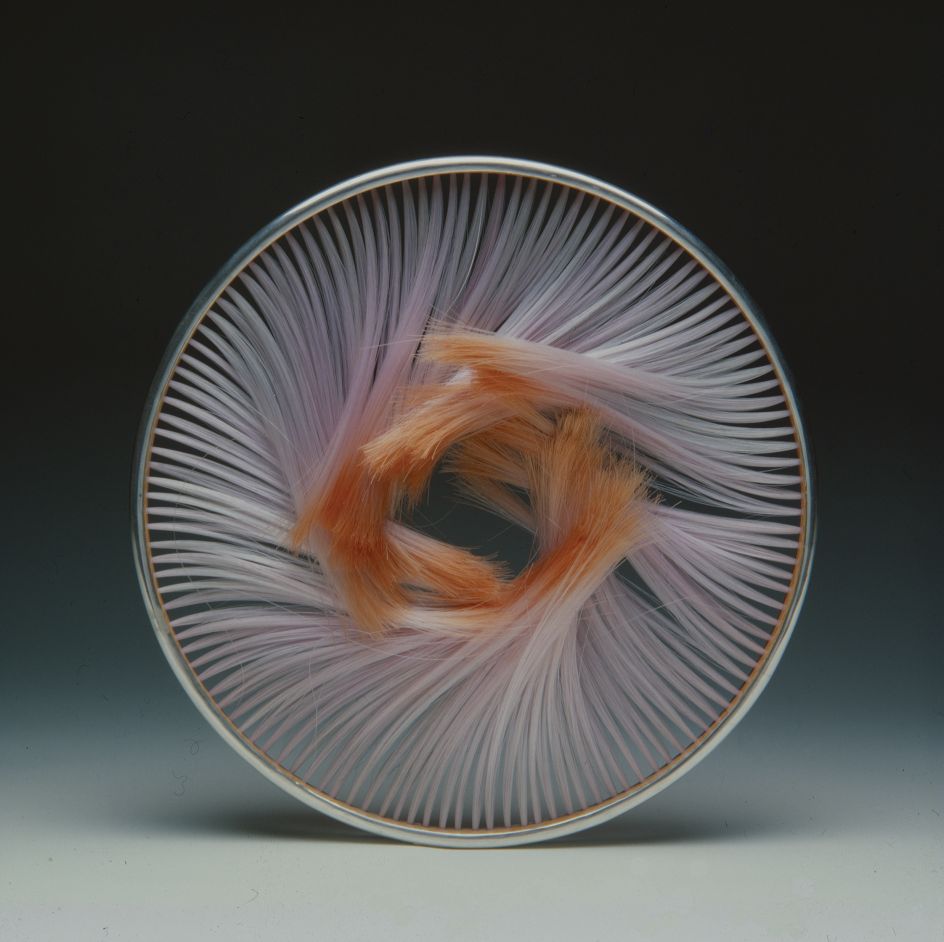
Tufted Necklace, 1979. Image credit: Peter Mackertich
At what point did your work expand into other areas after beginning in jewellery? Was there a specific project that caused this progression?
I was given a Crafts Council bursary in 1982 to work in Amsterdam, where I made my first garment. This was a long-sleeved shirt, which I had initially thought of as something to join two wrists and which marked the space between the two. It felt as though I had crossed a sort of line and as I no longer thought of it as jewellery, it seemed in a sort of no man’s land.
You have also curated two exhibitions about jewellery practice. Is this something you will return to?
I curated New Tradition in the 1980s for the British Crafts Centre in Covent Garden and wrote an essay for the catalogue. This charted recent developments in contemporary jewellery at that time.
Later, in 2007, I curated Then and Now for Barrett Marsden Gallery (now Marsden Woo Gallery) which brought together a number of jewellers who were all rethinking traditional, archetypal forms of jewellery, such as lockets, cameos etc and giving them a contemporary identity. I am in discussion with Marsden Woo Gallery about another jewellery show there in the next year or so.
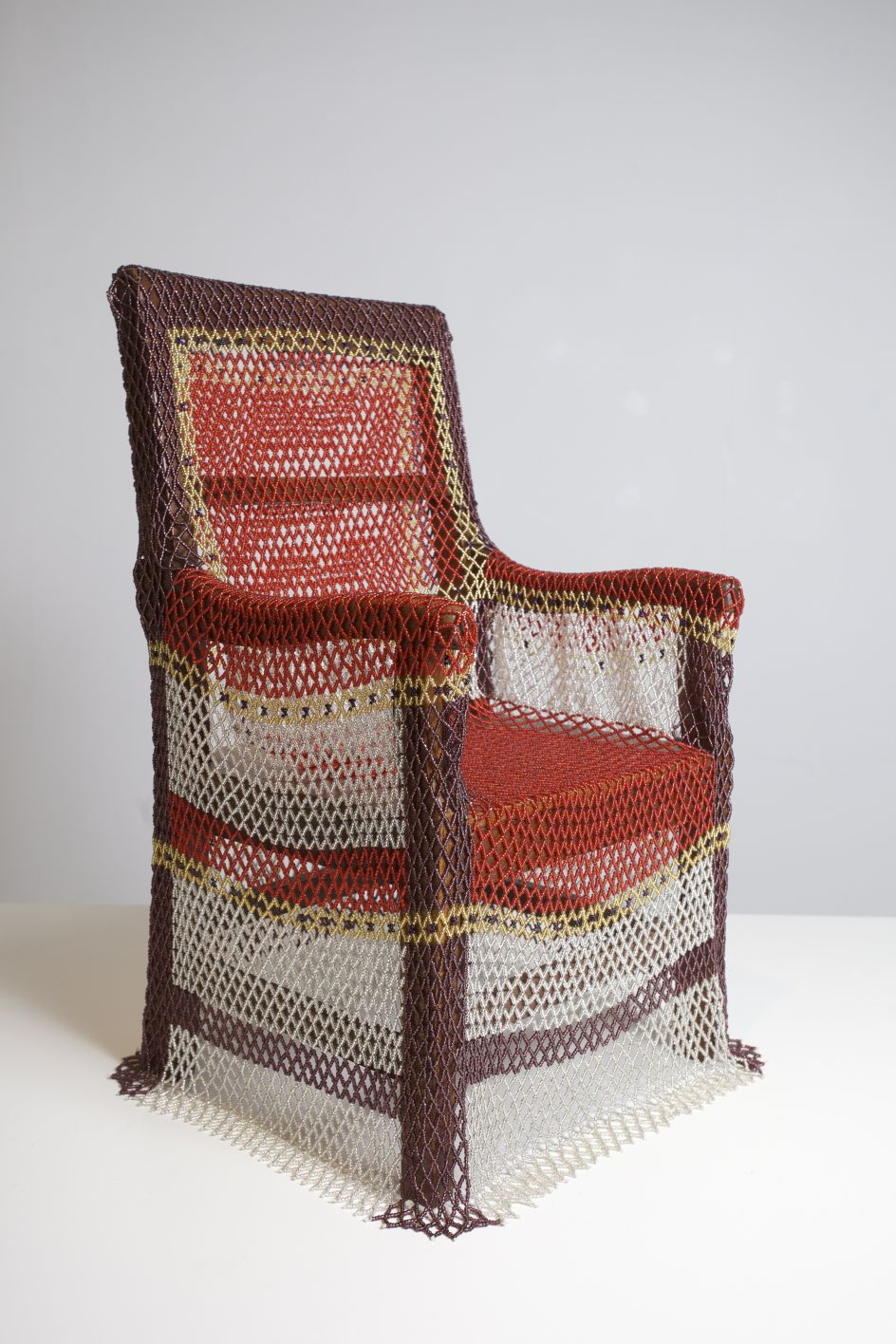
Dressed Up, 2011. Image credit: Phil Sayer
While you have been at Central Saint Martins, you have seen lots of students graduate. Are there any particular works or students that particularly stick in your mind? Or was there a certain graduation year that sticks in your mind?
It has been a pleasure to see so many students graduate and produce amazing work. The ones that come to mind are Caroline Kernick, Percy Lau, Lucie Davis, Esna Su, Veronika Fabian, the list could go on…
What recent trends are you drawn to in contemporary jewellery? Since your time teaching at Central Saint Martins, what key progressions or changes have you seen in the discipline?
The BA Jewellery Design course encourages each student to investigate their own research topic – one that they feel strongly about – so themes have included the plight of refugees, the scandals of the Magdalen Laundries, mental health issues, American politics, excessiveness of consumerism and many more. There is always a drive to use materials in new ways to communicate ideas – ideas of value, identity and sustainability have been taken on successfully.
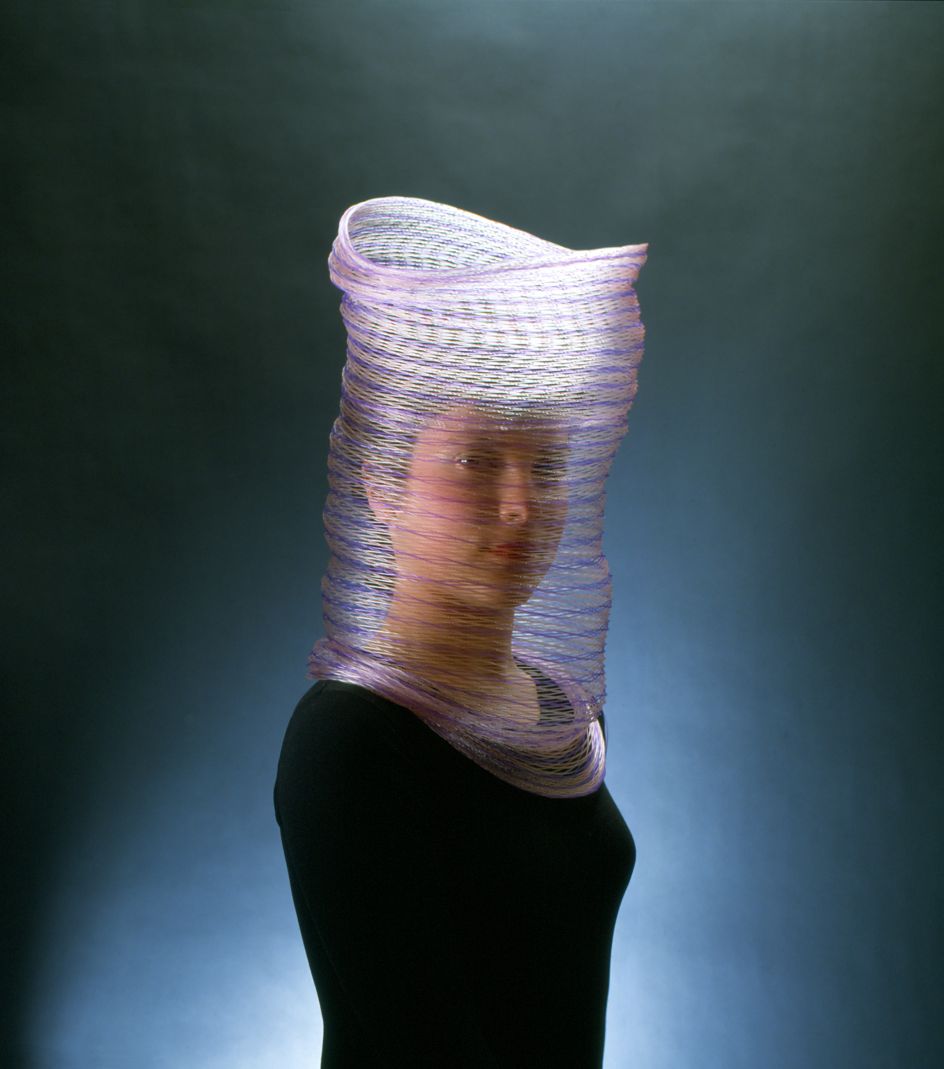
Broadhead Necklace, 1983. Image credit: David Ward
What do you think makes Jewellery Design at Central Saint Martins unique, as opposed to other art colleges?
The range of staff expertise is outstanding – one of the benefits of having fairly large cohorts of students. All staff are professionally practising artists, designers and craftspeople and so they bring an amazing mix of skills and knowledge. The excellent links the course has with industry and institutions such as the V&A and the Foundling Museum means our students get a unique experience of presenting their work in different contexts and to different audiences.
What was the last collection or exhibition of contemporary jewellery, or any discipline for that matter, that you saw which inspired you?
I was fortunate to be a judge for the Herbert Hoffman and the Talente prizes at the Schmuck and Talente exhibitions at the Munich Jewellery Week. Julia Maria Künnap’s and Benedict Fischer’s work stood out. I’ve been looking closely at the Manchester Art Gallery’s collection of paintings several of which are inspiring my new work.
What are your plans after leaving the College as course and programme leader?
I'm currently staging an exhibition, ReFrame, with my daughter, Maisie Broadhead, at Manchester Art Gallery until 20 January 2019. I will also have a solo show at the Lethaby Gallery this month and then in May new work at Marsden Woo Gallery, London.
Caroline Broadheath: A Retrospective runs until 6 February at Central Saint Martins' Lethaby Gallery. Find out more at www.arts.ac.uk.




 by Tüpokompanii](https://www.creativeboom.com/upload/articles/58/58684538770fb5b428dc1882f7a732f153500153_732.jpg)

 using <a href="https://www.ohnotype.co/fonts/obviously" target="_blank">Obviously</a> by Oh No Type Co., Art Director, Brand & Creative—Spotify](https://www.creativeboom.com/upload/articles/6e/6ed31eddc26fa563f213fc76d6993dab9231ffe4_732.jpg)










